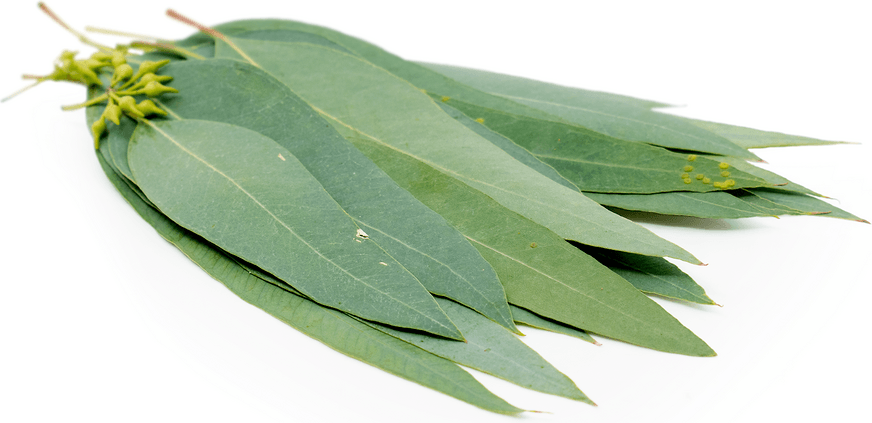Eucalyptus
The eucalyptus plant is something of a Swiss Army knife of holistic medicine: Its essential oil is often combined with other plant extracts and used to treat everything from asthma and common colds to bacterial infections, nail fungus, head lice and gingivitis. The plant is also considered aesthetically pleasing, so florists often include it in seasonal arrangements as an alternative to baby’s breath or other fillers, and its fresh, woodsy aroma makes an effective and natural room deodorizer. For millennia, people have used eucalyptus therapeutically to fight infections, repel insects and treat myriad conditions1.
English Name: Eucalyptus
Latin Name: Eucalyptus globulus
Type: Botanical
What is Eucalyptus?
Native to Australia, the eucalyptus tree might be most famous as the primary food source of koala bears. Today this member of the Myrtaceae family also grows in parts of India, Europe and South Africa and may be known as Tasmanian blue gum, fever tree or stringy bark tree2. It is related to the common myrtle plant and is considered the tallest flowering plant on the planet.
The evergreen leaves of the eucalyptus are a pleasant blue-green color and usually grow in clusters along thin branches. Mature trees may produce yellow or red flowers of fringe-like stamens and woody, cone-shaped fruit that release rod-shaped seeds.
How does it work?
The main active ingredient in the plant is a compound called eucalyptol or cineole, which is extracted from the tree’s evergreen leaves as an essential oil. This compound has been shown to have antimicrobial properties, as well as a fresh, menthol aroma that naturally elevates mood and alleviates congestion2.
Also found in smaller amounts in other botanicals, such as cannabis, ginger and peppermint, cineole has antibacterial, antifungal, analgesic, diuretic and expectorant properties that make it incredibly useful in holistic treatments. Though considered safe for general use, the oil is strong enough to irritate skin upon contact, so a carrier oil is necessary for topical applications3.
What are its benefits?
Research has shown that the cineole in eucalyptus oil can help break up mucous and ease the difficult breathing associated with bronchial conditions like colds and asthma4. There is also evidence to support the effectiveness of eucalyptus in reducing dental plaque and improving both gingivitis and fresh breath4. The antifungal properties of cineole are effective in easing the symptoms of conditions like dandruff, psoriasis and athlete’s foot1.
The fresh, slightly woodsy aroma of eucalyptus makes it a popular aromatherapy agent that can help lower stress and increase focus, especially when used in a diffuser. The analgesic properties of the eucalyptus plant can be effective for alleviating general muscle soreness and the aches of arthritic joints when applied topically, and recent research indicates cineole can be very effective in combatting antibiotic-resistant strains of Staphylococcus aureus bacteria2.
Products featuring Eucalyptus
Mucus-Clear™ for Phlegm & Congestion
Headache Soothe™ for Head & Neck Tension

Practice Self Care
Native Remedies recommends you consult your doctor before introducing new remedies into your regimen. Always ensure you are buying high-quality, laboratory-tested supplements from a reputable supplier. At Native Remedies, we back all our products with a 100 percent money-back guarantee. If you’re not happy with your purchase after trying it for 30 days, simply send it back for a refund. Here’s to your good health!
The content provided is for informational purposes only. It is not a substitute for professional medical advice. If you have a health condition, please consult a medical professional and do not use this information to self-diagnose or self-treat.
References:1. "18 Wonderful Benefits of Eucalyptus Oil." Organic Facts. August 10, 2018. Accessed August 13, 2018. https://www.organicfacts.net/health-benefits/essential-oils/health-benefits-of-eucalyptus-essential-oil.html.2. Deckard, Angela. "16 Proven Benefits of Eucalyptus Essential Oil." Healthy Focus. April 20, 2018. Accessed August 13, 2018. https://healthyfocus.org/eucalyptus-essential-oil/.3. "Eucalyptus: MedlinePlus Supplements." MedlinePlus. December 19, 2017. Accessed August 13, 2018. https://medlineplus.gov/druginfo/natural/700.html.4. "Eucalyptus: Uses, Side Effects, Interactions, Dosage, and Warning." WebMD. Accessed August 13, 2018. https://www.webmd.com/vitamins/ai/ingredientmono-700/eucalyptus.Reviewed by Master Herbalist, Mary Ellen Kosanke